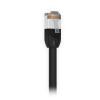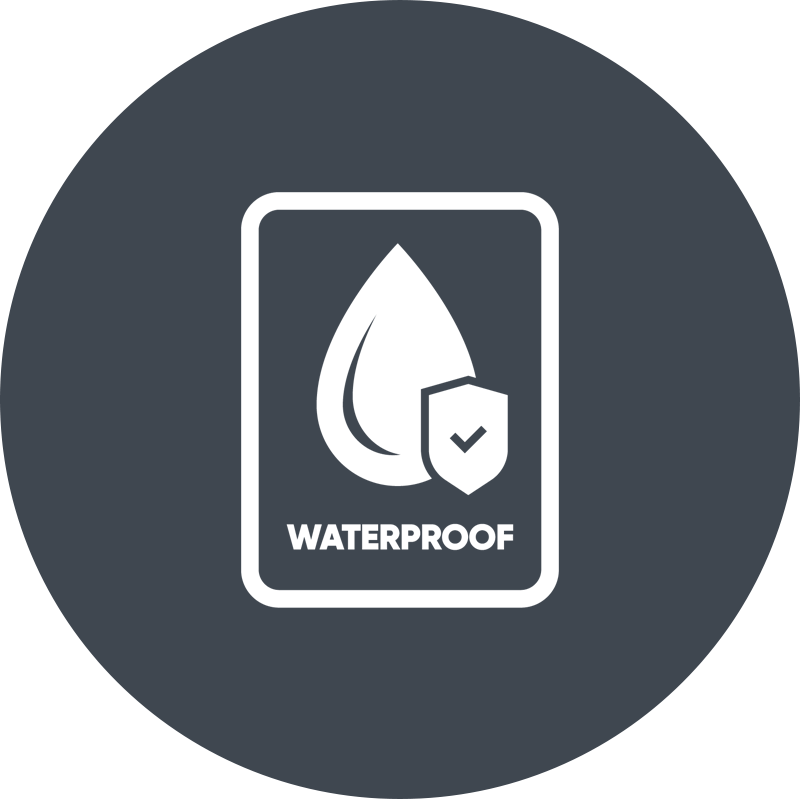-
Kč


Ubiquiti UACC-Cable-Patch-Outdoor is a Cat. 5e Ethernet patch cord, 2 m long, with a black sheath. It has S/UTP shielding and a grounding wire, it is suitable for outdoor use. The wires are made of copper, their thickness is 24 AWG.

Length 2 m, color black
The patch cord is 2 m long and its coating is black.
Outdoor patch cord
The coating has been fully adapted for outdoor use. It is resistant to UV radiation, can operate in temperatures from -40° to 80° C. It is perfect for many installations, especially for home use. If you need to connect the device a short distance from the house (e.g. on the roof), you do not need to buy a cable and prepare it manually, all you need is a suitable patch cord.


S/UTP shielding, diameter 6 mm
The offered product has shielded RJ45 plugs, all wires are protected by a braid (STP). The diameter of the wire is 6 mm. When installing devices outside buildings, shielded cables provide additional overvoltage protection.
Category 5e
The offered product has shielded RJ45 plugs, all wires are protected by a braid (STP). The diameter of the wire is 6 mm. When installing devices outside buildings, shielded cables provide additional overvoltage protection.
The wires are made of 100% copper, they ensure good transmission quality, also when using PoE power. Category 5e is perfectly adequate for all 1G Ethernet connections, it will also work at higher bandwidths, but at distances less than 100 m.

Specifications
| UACC-Cable-Patch-Outdoor-2M-BK | |
| Weight | 90 g (3,17 oz) |
| Cable length | 2 m |
| Cable color | Black |
| Cable type | 5e |
| Shielding type | STP |
| Flame rating | VW-1 (UL1581) |
| Conductor wire gauge | 24 AWG |
| Conductor type | Stranded copper |
| Jacket material | TPE (Thermoplastic elastomer) |
| Jacket diameter | 6 mm (0.24") |
| Bend radius | Min. 24 mm (0.94") |
| Storage temperature | -30 to 75°C (-22 to 167°F) |
| Installation temperature | -20 to 60°C (-4 to 140°F) |
| Operation temperature | -40 to 80°C (-40 to 176°F) |
| Anti-crosstalk divider | No |
| Standards | TIA/EIA-568-B.2 ISO/IEC 11801 |






 Polski
Polski English
English Italiano
Italiano Español
Español Čeština
Čeština Српски
Српски Deutsch
Deutsch Ελληνικά
Ελληνικά Slovenský
Slovenský




